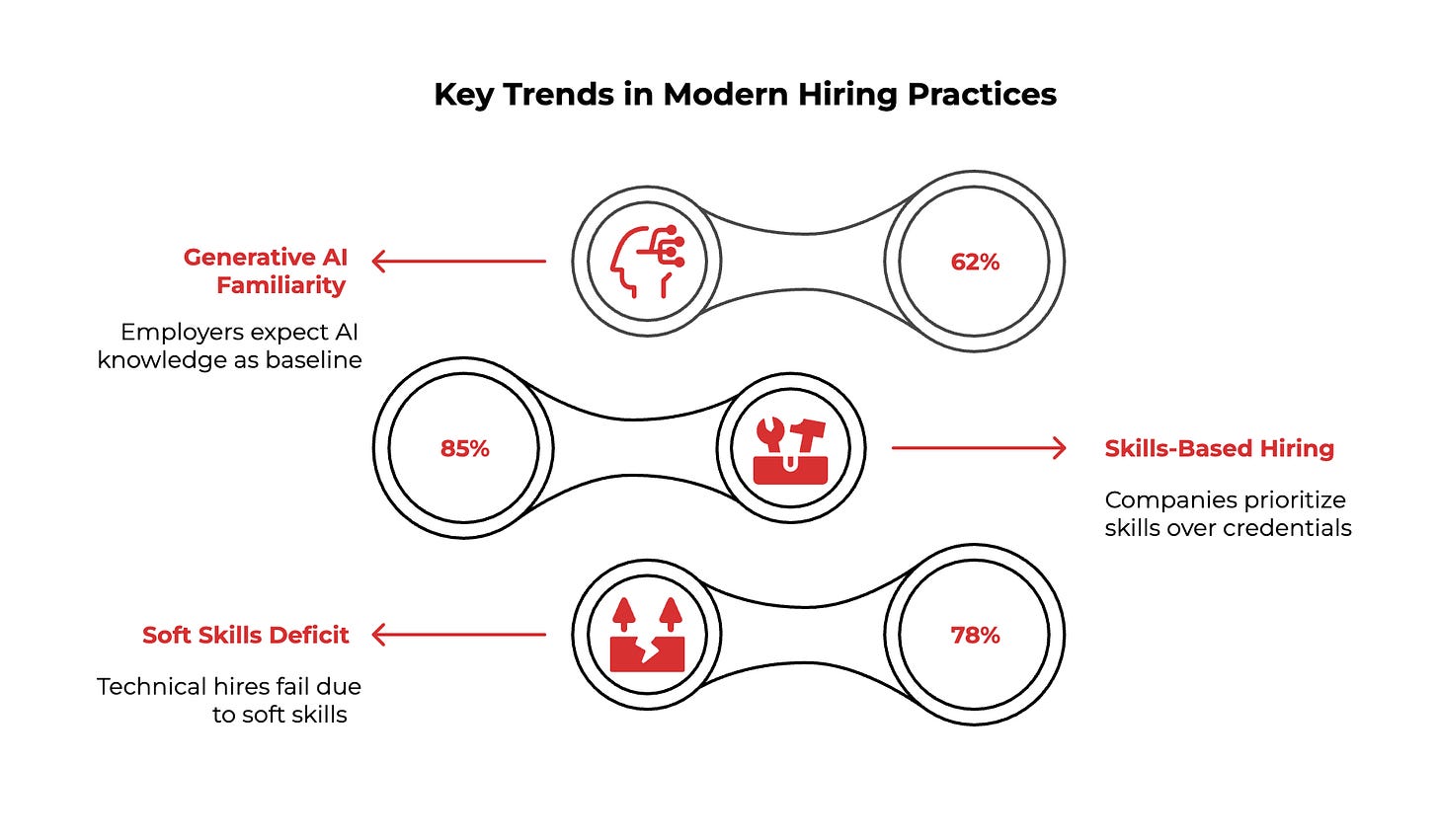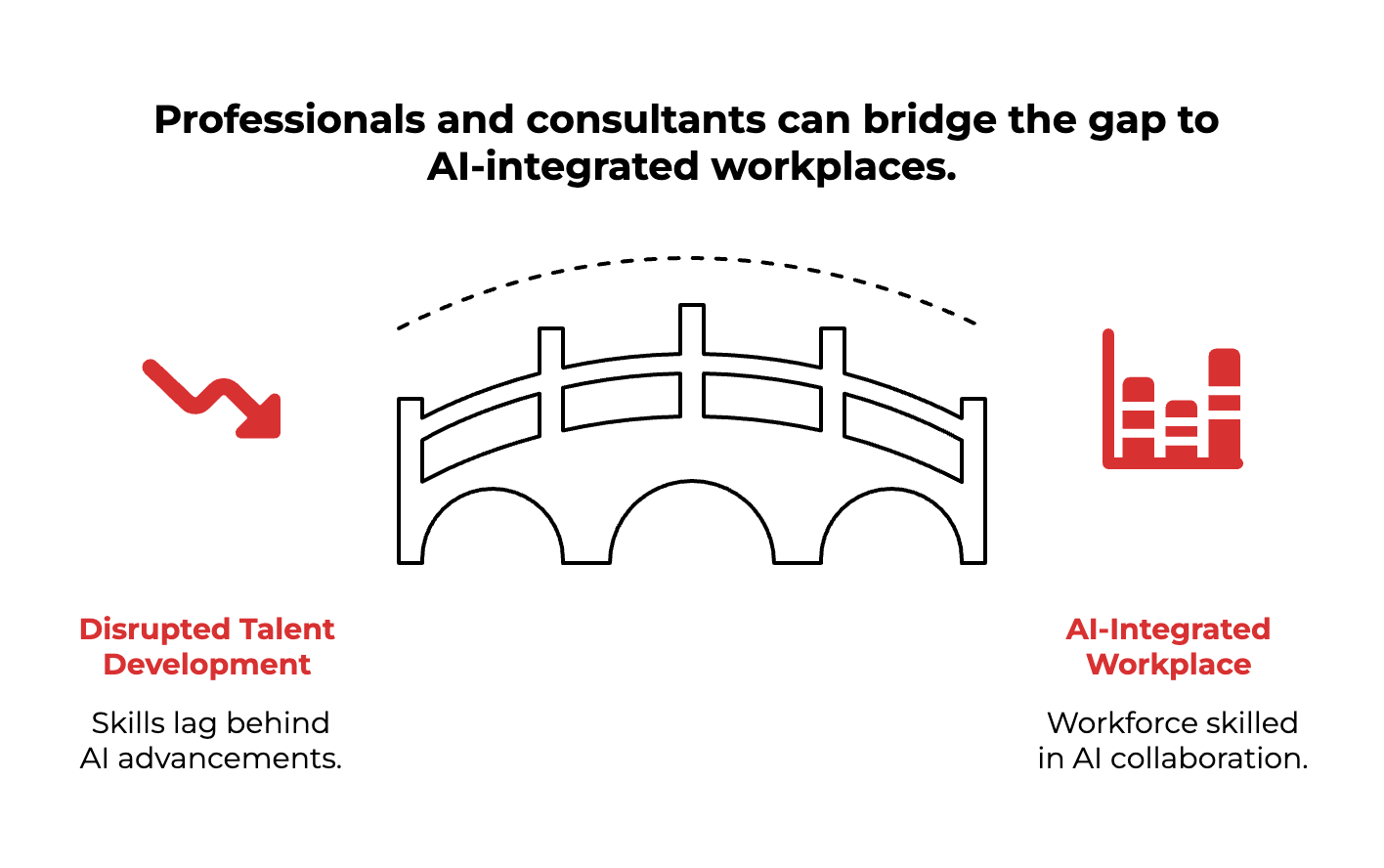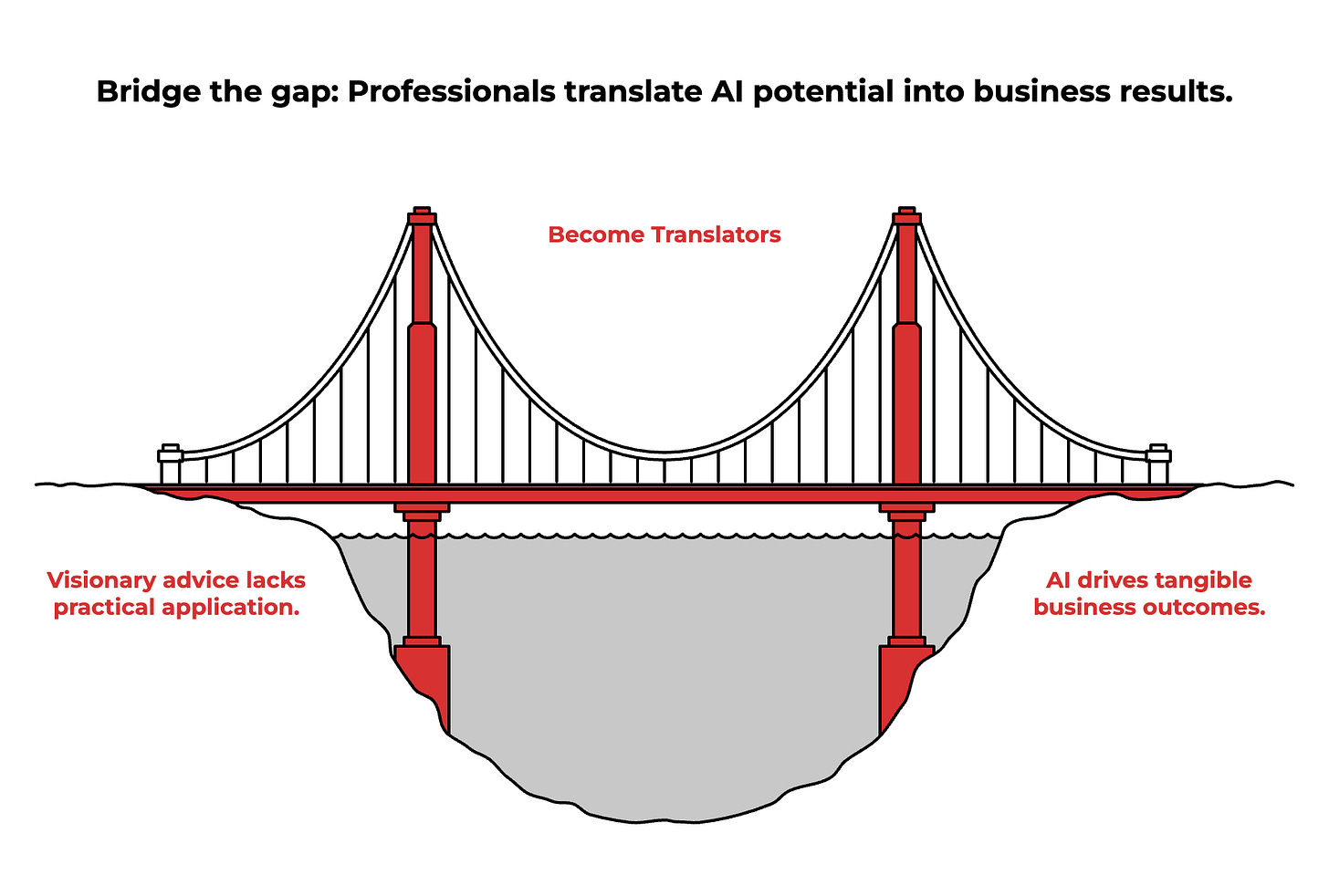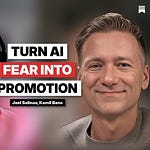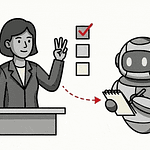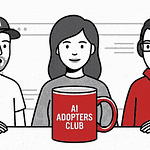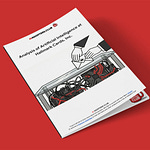Hey Adopter,
TLDR: AI thought leaders are solving tomorrow's problems while you need to win today's battles. Their grand visions contain useful insights, but only if you know how to extract the practical tactics from the theoretical noise.
What You'll Get From Reading (and watching👆)
This breakdown shows you how to separate Silicon Valley speculation from workplace strategy. You'll learn which expert insights actually apply to your career and which ones are just intellectual entertainment. More importantly, you'll discover the specific positioning moves that help you stand out while everyone else chases AI hype.
AI thought leaders love to make grand pronouncements about the future of work. But here's what I've noticed after reading through their latest insights: most of them are solving problems you don't have while ignoring the ones you do.
Take Geoffrey Hinton's warning about a 10-20% chance that AI will "take control from humans." That's fascinating cocktail party conversation, but it doesn't help you explain to your boss why your team needs better AI tools. Or consider Demis Hassabis suggesting everyone should study mathematics and physics to understand "how these systems are put together." Great advice if you're 22 and choosing a major. Not so helpful if you're 35 with a mortgage and need to stay relevant in your current role.
The disconnect isn't malicious. It's structural. These leaders are building the future, but you're living in the present. They're thinking in decades while you're thinking in quarters. They have the luxury of theory while you need tactics that work tomorrow morning.
But buried in their grand visions are some genuinely useful insights for those of us operating in the real world. Let me translate the signal from the noise.
The Business Value Obsession You Should Steal
Lee Bogner from Mars Inc. gets one thing exactly right: start with the business problem, not the technology. His framework for agentic AI sounds futuristic, but the principle is immediate and practical.
Before you pitch your next AI initiative or recommend a tool to a client, ask these three questions Bogner's approach implies:
What specific business outcome are we trying to achieve?
What human processes are we trying to improve, not replace?
How will we measure success in terms people care about?
This isn't just good advice for AI projects. It's how you position yourself as someone who thinks strategically rather than tactically. Whether you're an ambitious professional trying to lead AI adoption internally or a consultant selling AI strategy, this business-first framing separates you from the tool-obsessed crowd.
The Skills Gap Everyone's Missing
Here's where the thought leaders reveal something important through what they don't say. Demis Hassabis talks about studying STEM. Fei-Fei Li advocates for scientific thinking over "science fiction." Jeremy Howard pushes for AI accessibility.
What none of them address directly is the messy middle where most of us live: you understand enough about AI to see its potential, but not enough to implement it confidently. You can write a decent prompt, but you can't evaluate whether the output is actually better than what your team was producing before.
This gap is your opportunity. The market doesn't need more AI engineers. It needs more AI translators, people who can bridge the technical capability with business reality. That means developing what I call "applied AI literacy":
Learning to critique AI outputs rather than just accepting them
Understanding when AI recommendations align with your business logic and when they don't
Becoming the person who can explain AI capabilities and limitations to stakeholders who matter
The Junior Crisis That's Already Here
The Workera platform highlights something that should worry every leader: AI is automating the entry-level tasks that historically taught people how to work. Junior employees used to learn by doing repetitive analysis, drafting basic reports, and handling routine client communication.
If AI handles these tasks, how do we develop the next generation of talent? More importantly for you, how do you demonstrate value when basic competency becomes automated?
The answer isn't to compete with AI on efficiency. It's to own the judgment layer above it. Become the person who knows when AI analysis is sufficient and when it needs human refinement. Learn to spot the patterns AI misses and the context it can't understand.
For consultants, this represents a massive opportunity. Your clients are facing this junior crisis too. They need frameworks for developing talent in an AI-augmented workplace. They need strategies for maintaining institutional knowledge when basic tasks are automated. This isn't theoretical future planning. This is happening now.
Quick Poll: Where Are You Really Stuck?
I want to understand what's actually blocking your AI progress, not what you think should be blocking it. Choose the option that best describes your current situation:
I understand AI's potential but struggle to identify which specific use cases would actually move the needle in my role or business
I can implement AI tools successfully but have trouble measuring and communicating the business value to stakeholders who matter
I know how to use AI tactically but can't figure out how to position myself strategically as the "AI person" without seeming like I'm chasing trends
I'm confident in my AI skills but struggle to translate that expertise into concrete business opportunities or career advancement
Reply and let me know which resonates most. Your answer helps me understand what practical content to prioritize in future issues.
The Practical Takeaway Everyone Needs
The thought leaders are right about one thing: the shift to skills-based work is accelerating. But they're wrong about what skills matter most.
It's not about learning to code or studying neural network architectures. It's about learning to work with AI as a thinking partner rather than a magic black box. It's about developing the judgment to know when to trust AI recommendations and when to override them.
Most importantly, it's about positioning yourself as someone who can translate AI potential into business results. Not the person who can build AI systems, but the person who can make them useful.
Whether you're trying to become indispensable in your current role or building an AI advisory practice, that translation capability is your competitive advantage. The thought leaders will keep building the future. Your job is to make it work in the present.
Adapt & Create,
Kamil




